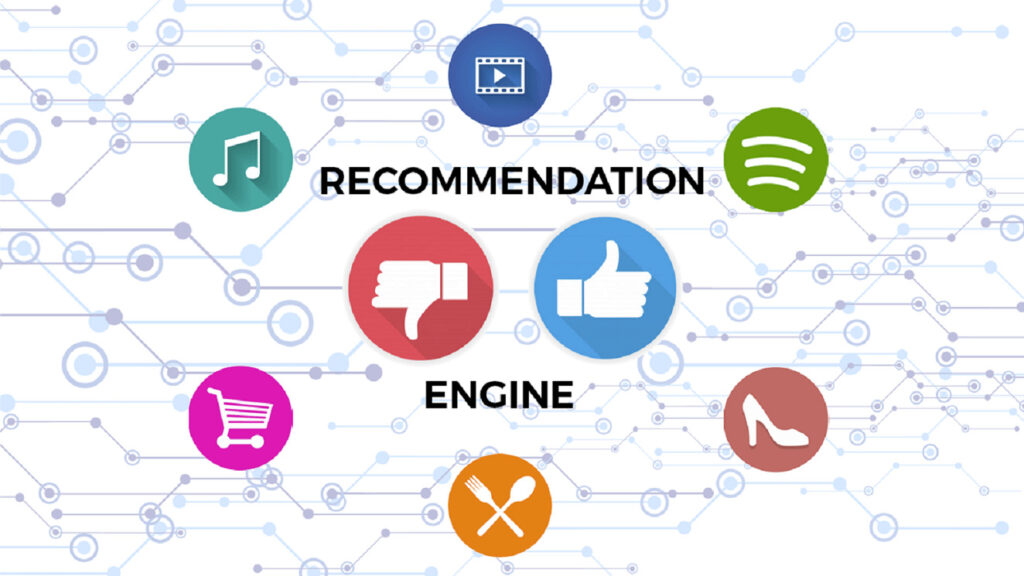Artificial Intelligence in E-Commerce
Artificial intelligence (AI) is a branch of computer systems that can perform tasks that typically require human intelligence. It gives enterprises insights into their business operations. Enterprises continue to invest in AI, and e-commerce is no exception. AI in e-commerce is booming at such a pace that revenue is predicted to reach $36.8 billion worldwide by 2025.
I think one important capability that AI brings is its improved recommendation systems. A recommendation engine is a system that can suggest products or services tailored to a specific user based on his or her interests, preferences, and behavioral history.
E-commerce uses AI to collect data about consumers’ profiles and shopping information. Then it analyzes the data for purchase patterns to optimize recommendation engines. These capabilities allow e-vendors to make recommendations tailored to each customer’s needs and preferences. For this reason, AI-based recommendation engines have been increasingly integrated into e-commerce.

Two Sides of AI-Based Recommendations
I cannot count how often I have come across product recommendations when shopping on e-commerce websites. These sites regularly provide AI-enabled personalized and automated recommendations for products I am interested in. I also receive product recommendations via emails. These recommendations help me search for the products I want and keep those product threads current.
However, I do have privacy concerns about the use of AI-enabled recommendation engines in e-commerce. For example, do e-commerce engines collect too much information about my shopping preferences and habits? How are the collected data used for analysis? Are the collected data protected by e-commerce? In this blog, I will elaborate on both the bright side and the dark side of AI applications from a consumer perspective.
Bright Side of Recommendation Engines
I believe that E-commerce has significantly improved consumers’ shopping experiences by deploying AI-based recommendation engines. For example, Amazon provides recommendation with categories such as “Products related to this item” and “Customers who viewed this item also viewed . . . .” This suggests that Amazon keeps specific customers informed about related items by using their browsing history and/or shopping patterns. In addition, Amazon may also use recommendations for targeted marketing via email campaigns.
E-commerce can better serve customers with AI-based recommendation engines. These applications help customers make informed purchase decisions. AI-based recommendation engines filter products and recommend those most relevant to specific consumers. They also suggest similar products customers may be interested in purchasing. As a result, customers may save time and effort while shopping online, and they may be regularly updated about new trends or product categories.
To conclude, the most positive aspect of AI usage in e-commerce is its usefulness to consumers. I highly value the usefulness of AI-based recommendation systems in online shopping.
Dark Side of Recommendation Engines
E-commerce websites claim that their AI algorithms consider the interests of consumers and preserve privacy. However, consumers are often not satisfied with these claims. Consumers continue to express their concerns about privacy and ethical issues surrounding the use of AI in e-commerce. Thus, I believe the dark side of AI-based recommendation engines can include data security and privacy issues. In my opinion, new technologies can always represent fresh challenges when it comes to consumers’ privacy concerns.
E-commerce websites can use AI to easily access and collect consumers’ identities, profiles, purchase history, ratings, and reviews. Therefore, privacy issues are even more challenging than ever when e-commerce integrates AI tools into business operations. This will make it more difficult for consumers to maintain their anonymity on e-commerce websites.
I summarize these concerns into two main issues. First, privacy is the most critical concern consumers may have in shopping online. Consumers have a limited understanding of what information is collected, when it is collected, and how it is used. They may also believe their information is collected and used without their consent or acknowledgement. They perceive that loss of privacy is probably associated with online shopping.
Second, some consumers may feel their data security may be compromised. When I receive product recommendations in e-commerce, I know my privacy data are collected for analysis. When I receive product recommendations via email, I feel I am being watched and researched by AI. I also suspect AI knows me too well, which upsets me sometimes. All these feelings can create a sense of privacy invasion. E-commerce websites must address consumers’ privacy concerns to help reshape the application of AI in e-commerce and other business domains.
Conclusion
AI-based recommendation engines have both bright and dark sides. From the consumers’ perspective, the usefulness of online shopping comes at the cost of losing privacy. E-commerce should strive to address consumers’ privacy concerns to reshape the application of AI and sustain business.
Dr. Xiaolin Lin
Assistant & Gensler Professor of Computer Information Systems


